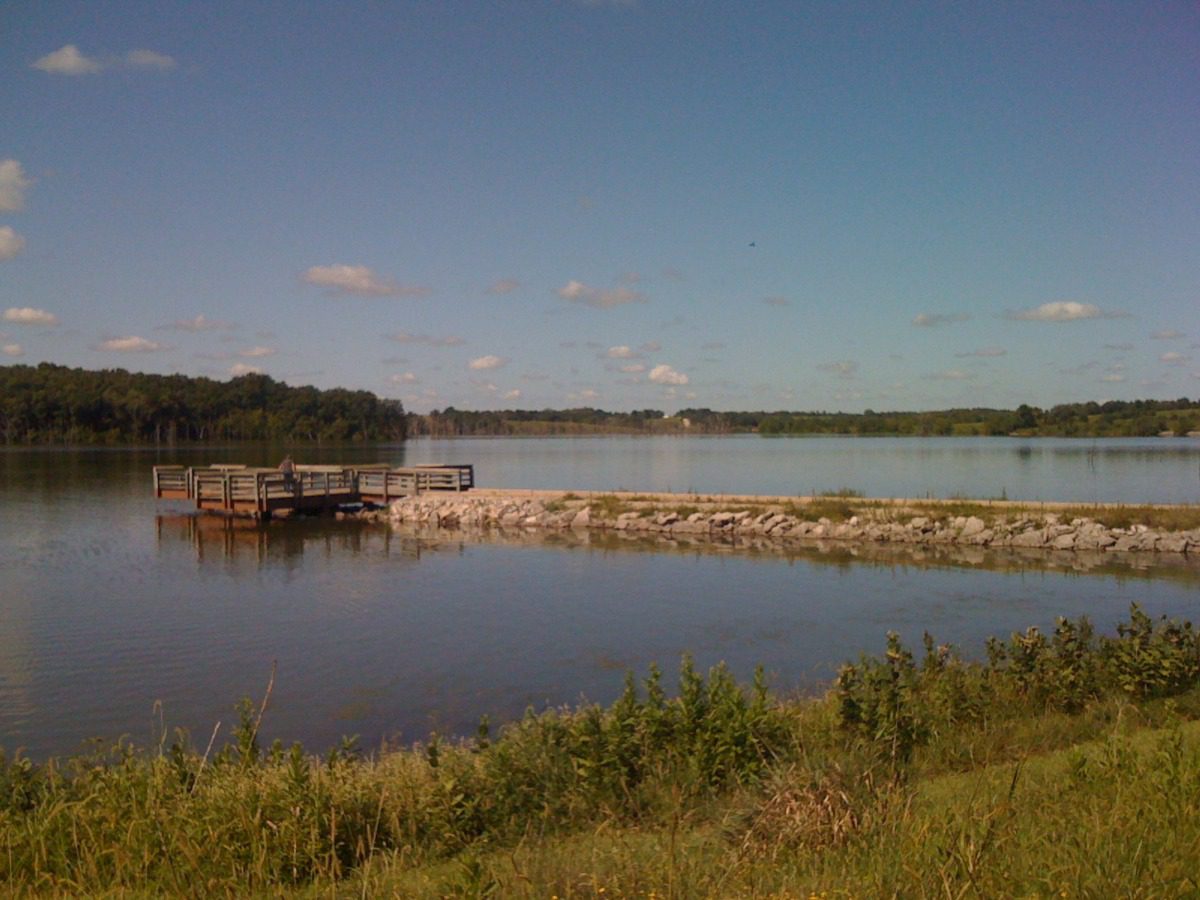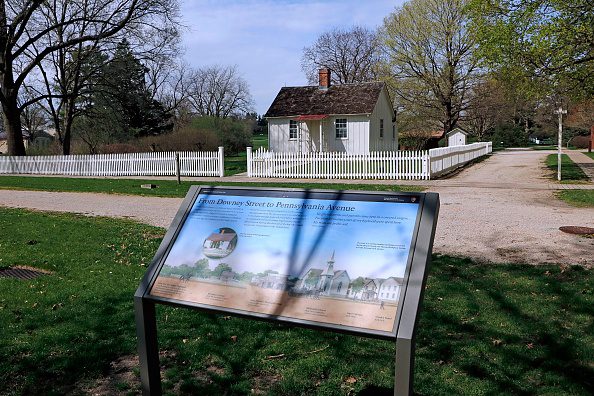
Photo courtesy of Stevenjgarner/CC BY 3.0.
What began as a project to prevent soil loss, provide a recreational lake, and potentially supply water to the town of Keosauqua has become a popular wildlife area.
Naming Lake Sugema
Van Buren County historian Ralph Arnold is the person responsible for naming Lake Sugema, and—in a twist of mystery—he refused to say what the name meant. Only upon his death in 2002 did a letter show up at the local newspaper, the Van Buren County Register, ending the mystery. According to Arnold, Sugema is a Native American word for mosquito.
Suffice it to say, if you’re heading up to Lake Mosquito, you best not forget your insect repellant!
Lake Sugema Wildlife
The area spans more than 3,900 acres of timber, lake, and grasslands, and is home to the endangered slender glass lizard and Henslow’s sparrow, along with hundreds of plant species. It’s part of the Lake Sugema-Lacey-Keosauqua Bird Conservation Area (BCA), which includes Lacey-Keosauqua State Park, county conservation-managed land, and private land. This area has become a destination for bird watchers from across the country.
Lake Sugema is also near the Shimek Forest BCA, enhancing Van Buren County’s stature in the birding community. Jeff Glaw, wildlife biologist for the Lake Sugema area since 1999, noted the presence of various bird species—including the cerulean warbler, a species of greatest conservation need.
The diverse landscape at Lake Sugema requires different management plans to achieve various outcomes. For instance, Henslow’s sparrows prefer older grassy areas, while quail thrive in disturbed soil, bare ground, and shrubby cover. The area is home to a booming quail population and a resurgence of pheasants following mild winters and average springs. Additionally, rabbit hunters from multiple states visit the area each fall, attracted by the abundant cottontails.
Lake Sugema is also a significant draw for trophy white-tailed deer hunters. Despite being underutilized since an outbreak of Epizootic Hemorrhagic Disease (EHD) in 2013, the area remains a prime spot for bowhunters.
Read More About This
Read More Iowa News
This article first appeared on Good Info News Wire and is republished here under a Creative Commons license.
This story was generated in part by AI and edited by Courier Newsroom staff.

The Iowa industry that built families and fought racism—then vanished
Iowa’s meatpacking history is an essential part of the state’s overall story. Here’s why. Meatpacking has been one of Iowa’s biggest, most...

Guest post: Correcting the record about Carrie Chapman Catt
I appreciate Sam Cohen January 12, 2026, essay, “All about Arabella Mansfield and 3 other Iowa women to made history.” These women’s remarkable...

OPINION: I donated Iowan artifacts to preserve their legacy. The state is breaking its promise to protect them
Some 40 years ago, my mother donated a 1915 landscape plan to the State Historical Society of Iowa’s (SHSI) library in Iowa City. The plan, a rare...

5 unsung films that dramatize America’s rich labor history
By Peter Dreier, Occidental College The U.S. is in the midst of a new upsurge of union organizing. Is a Hollywood drama about angry Starbucks...

Learn about 10 innovators & inventors from Iowa
There are several amazing innovators and inventors from Iowa, some of whom may surprise you. Here are 10 you need to know. Iowa has been home to...

Say what? 10 Iowa sayings & slang, explained
Each state has its own vernacular. Here’s a guide to sayings and slang that are uniquely Iowan. Residents in each state have their own unique way of...




